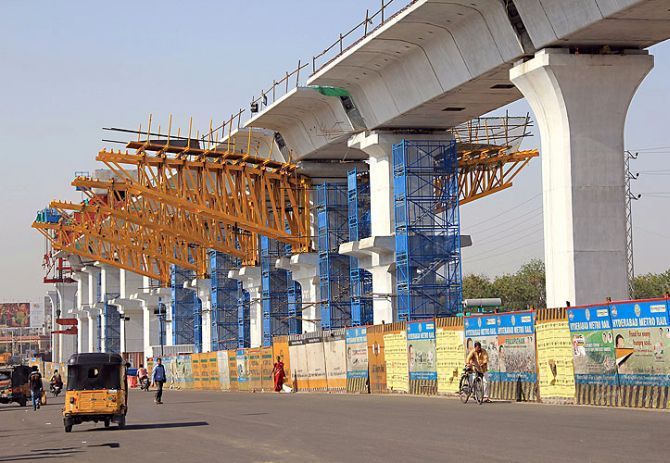 Reviving stalled projects to kick-start the investment cycle, and removing bureaucratic hurdles for speedy decision-making should top the next government’s list of priorities, say bankers.
Reviving stalled projects to kick-start the investment cycle, and removing bureaucratic hurdles for speedy decision-making should top the next government’s list of priorities, say bankers.
They also expect fiscal stability, a cut in the subsidy bill and improved governance and recapitalisation in public sector banks.
Sunil Kaushal, regional chief executive (India & South Asia), Standard Chartered Bank, said the new government should accelerate project clearances and partner state governments for speedy execution to usher in sustained growth.
Resolution of payments stuck with authorities would release cash into the system, he said, adding this would have a significant trickle-down impact on smaller entities.
Shyam Srinivasan, chief executive and managing director, Federal Bank, said with the new government coming in, there was optimism.
“There are expectations many stalled projects will be restarted and the economy will improve. However, all this will take time. Improvement and complete stability will likely take three-four quarters,” he said.
Seconding Srinivasan’s views, Vikram Limaye, managing director, IDFC, said de-bottlenecking stuck investments was necessary.
Much money has been invested in these. Also, reforming the dispute resolution mechanism needed urgent attention, Limaye said.
A revival in investment is likely to be a key near-term initiative.
The capital expenditure cycle could be re-started by addressing a few last-mile implementation bottlenecks in the case of stalled or sub-optimally operating projects, said Shikha Sharma, managing director and chief executive of Axis bank.
Bankers want the government to push economic development on a priority basis. Pressing issues such as policy stability and simplification of business regulations should be carried out seamlessly, they said.
For the last two years, India has seen sub-five per cent annual growth; for this year, most growth estimates stand at 5.5 per cent.
Stuart Milne, chief executive of HSBC India, said, “The first clear mandate to a single party in 30 years could well be the first step towards an economic and social revival. The voters have played their part; now, it is up to the government to take policy initiatives to justify this faith. The cabinet appointments and the first 100-day plan will be keenly watched.”
An economic slowdown and policy logjams have hit projects, eroding companies’ repayment capacities.
This led to rising defaults on loan repayments and piling up of stressed loans on the books of banks.
Bankers say significant changes are needed in the way defaulters are dealt with. Banks have to be given greater powers to expedite recoveries.
Currently, the work at entities such as debt recovery tribunals has been hit by slow decision-making.
Decisive policies and removal of bureaucratic hurdles will help project implementation and reduce stress in the system.
In time, this would lead to a decline in non-performing loans, bankers said.
Public sector banks have been hit the worst by the slowdown and policy logjam; they account for about 70 per cent of bank loans.
Also, they were hamstrung by directives and interference by the government, said various executives at public sector banks.
The chief executives of two large public sector lenders said these banks were micro-managed by directives and an army of bureaucrats in the Department of Financial Services.
Addressing fear of vigilance and criminal action for taking commercial decisions was vital to restore confidence, many said.












 © 2025
© 2025